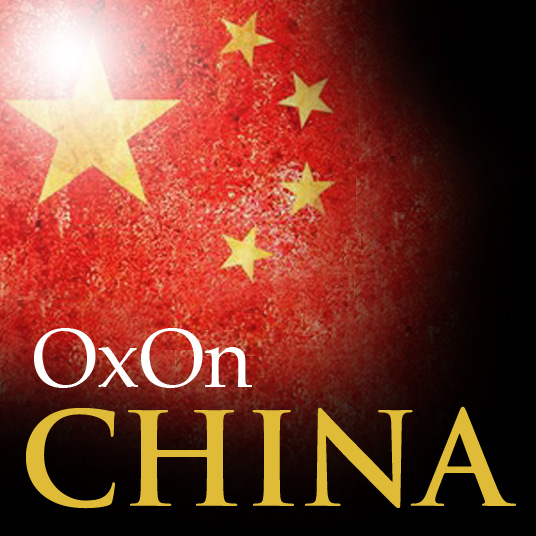 The legal relationship between the Chinese state and the citizen are contradictory. The laws on administrative litigation are on one side of the spectrum. They allow the Chinese to sue their government, one of the regime’s most promising reforms (though it has often failed to live up to its potential). On the other hand, re-education through labour (RETL) (laojiao (劳教)), a draconian detention programme, has long been a focal point for critics of China’s human rights record, whereby China’s police can sentence an individual to three years (with a possible 4th year extension) in a labour camp without a trial
The legal relationship between the Chinese state and the citizen are contradictory. The laws on administrative litigation are on one side of the spectrum. They allow the Chinese to sue their government, one of the regime’s most promising reforms (though it has often failed to live up to its potential). On the other hand, re-education through labour (RETL) (laojiao (劳教)), a draconian detention programme, has long been a focal point for critics of China’s human rights record, whereby China’s police can sentence an individual to three years (with a possible 4th year extension) in a labour camp without a trial
Particular cases bear out these contradictions. Tang Hui and Zhao Meifu, two women detained separately under China’s re-education through labour system, have become so well known in China that they helped prompt calls for reforming the RETL system. Yet, both women were recently denied compensation by China’s administrative courts. While criticism of China’s human rights record and courts tends to be very general, these cases show that the small details of China’s legal system showcase the biggest injustices.
In 2012, Tang Hui received an 18-month sentence for re-education through labour for her outspoken advocacy for seeking death sentences for the seven men who kidnapped, raped and sold her 11-year-old daughter into prostitution. She was released after about a week, on the grounds that she needed to care for her daughter. Zhao Meifu, meanwhile, received a one-year re-education through labour sentence because she visited Beijing to petition for grievances related to the seizure of her land and the demolition of her home (an extremely common complaint in contemporary China).
Some coverage has focused on how these well-publicized cases led to promises to reform RETL. Tang and Zhao’s recent failed attempts at receiving compensation, however, have led commentators to draw broader conclusions about the pressing need for China’s judiciary to become more independent.
While I wholeheartedly support such reforms, I argue that these glittering generalities overlook fairly technical but politically simpler problems with China’s administrative legal system. Both are at the heart of these decisions. To understand what I mean, simply look at the actual basis for the decisions made against Tang and Zhao.
In Tang’s case, ‘the court ultimately accepted the argument that the decision had been ‘inappropriate’ but not ‘unlawful’. While Duihua’s Human Rights Journal calls this result ‘paradoxical’, it has a basis in Chinese law. Specifically, according to Stanley Lubman, administrative law courts ‘may inquire into only the legality of administrative actions, not the appropriateness within the discretion of the agency involved’. This is a severe limitation, especially since most laws and administrative rules in China are broadly written to give the government wide discretion. For example, China’s Public Security Bureaus are granted such vague and wide-ranging powers to sentence individuals to re-education through labour that it is often difficult to make the case that an instance of detention was in clear violation of the law.
In Zhao’s case, the issue was even simpler. The court rejected her claim for compensation because the statute of limitations had expired. Unless otherwise provided for by law, litigation against the Chinese state must be initiated ‘within three months from the day when the plaintiff comes to know that a specific administrative act has been taken’. While this is not an unreasonably short standard compared to similar laws in New York or Germany, my research on administrative litigation in China (based on 178 interviews) suggests that this simple limitation derails more cases against the Chinese state than any other factor. Many Chinese unfamiliar with the legal system spend time petitioning and allow the statute of limitations to expire long before they ever set foot in a lawyer’s office or courthouse. Yet, according to Zhao and her lawyer, they had attempted to file the case much earlier. The courts managed to delay accepting the case or issuing any written statement until the expired statute of limitations gave them a legal way to refuse it outright. The statute of limitations is problematic, therefore, not only because many Chinese wait until it is too late, but because it puts time on the side of the already powerful state, allowing them to simply wait out the clock.
Partially in response to the public outcry over the well-publicized cases of Tang and Zhao, China’s leadership has recently suggested that RETL system will be phased out. But even if RETL is phased out and China’s judiciary was allowed more independence, changes to allow for courts to evaluate the reasonableness of the actions of government agencies and extending the statute of limitations would still be vital to provide real justice to average Chinese. Additionally, advocates for reform – both foreign and domestic – are in a better position to advocate such hugely important, but relatively technical issues. By contrast, a sweeping reform such as allowing China’s judiciary true independence may be a nonstarter, as it is a much more obvious and direct threat to the Chinese Communist Party. Instead of responding to every injustice by recommending the same broad reforms, China watchers should be more attentive to small details that can make a big difference.








1 Comment
This comment is excellent. It addresses exactly the kind of practical, technical reform that is so urgently needed to make the Chinese legal system a relevant force in the Chinese governmental system. The “rule of law” advocates and human rights advocates need to do their homework and press for concrete changes in Chinese statutes and procedures just the way they do in the US and Europe.